













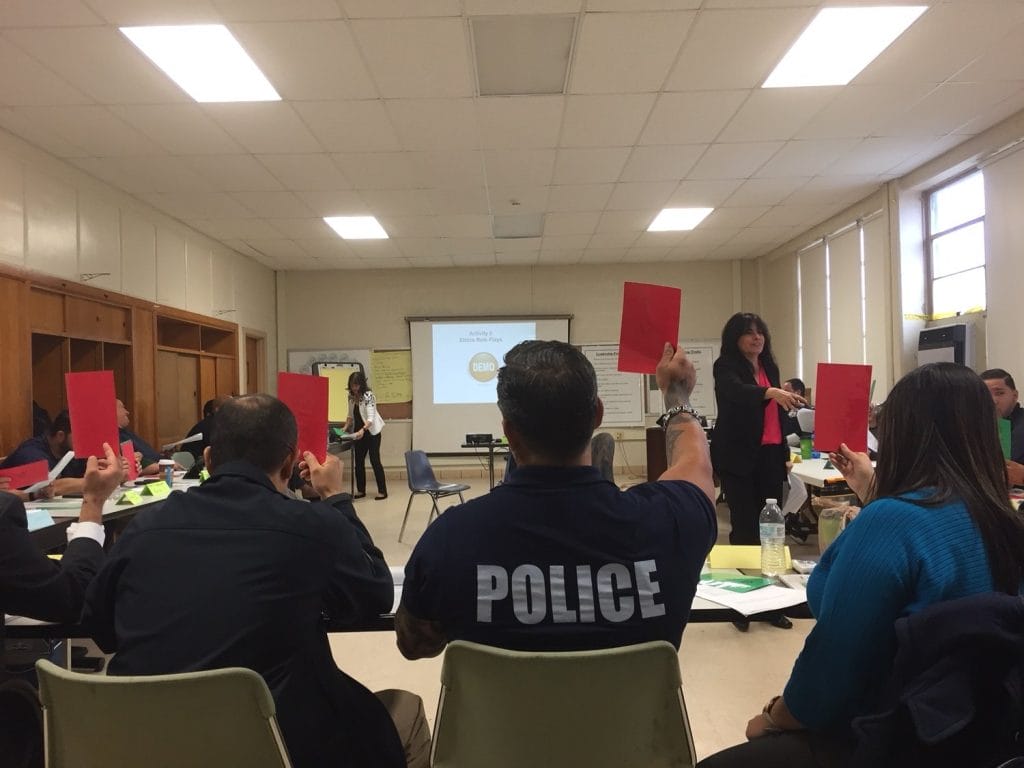
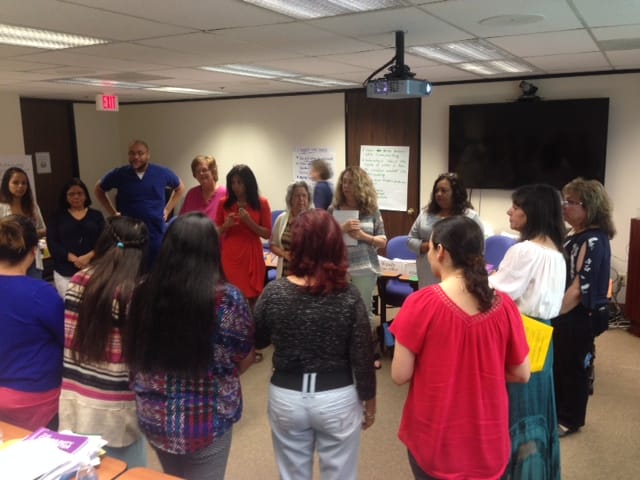

Federal agencies and programs (e.g., U.S. Office for Victims of Crime; U.S. Air Force; U.S. Joint Special Operations University)
State agencies (e.g., Maryland Department of Aging, Ohio Office of Criminal Justice Services, New Jersey Department of Health and Senior Services)
Local government agencies in several states, including city/county agencies, health and human service agencies, police departments, infants and toddlers programs, commissions on aging, volunteer programs, citizen services, victim services, etc.
Examples of our work:
San Jose Office of Immigrant Affairs
Cultural Responsiveness in Human Services
Language Access in Human Services
Administrative Office of Pennsylvania Courts:
The Trauma-informed Interpreter: Working with Domestic Violence and Abuse Cases
Working Effectively with Interpreters in Domestic Violence and Abuse Cases
Trauma, Self-care and Court Reporters: How Processing Trauma Affects Reporters — and What to Do About It
Baltimore City Police Department: Introduction to Legal Interpreting for Bilingual Officers
Maryland Administrative Office of the Courts: The Trauma-informed Interpreter — Interpreting for Victims of Trauma, Sexual Abuse and Domestic Violence
Mississippi State Department of Health
The Community Interpreter® International: Training of Trainers
Cultural Competence in Health and Human Services: Training of Trainers
Cultural Competence in Oral Health: Training of Trainers
San Francisco Office of Civic Engagement and Immigrant Affairs:
The Community Interpreter® International
The Community Interpreter® International: Training of Trainers
Cultural Competence in Health and Human Services: Training of Trainers
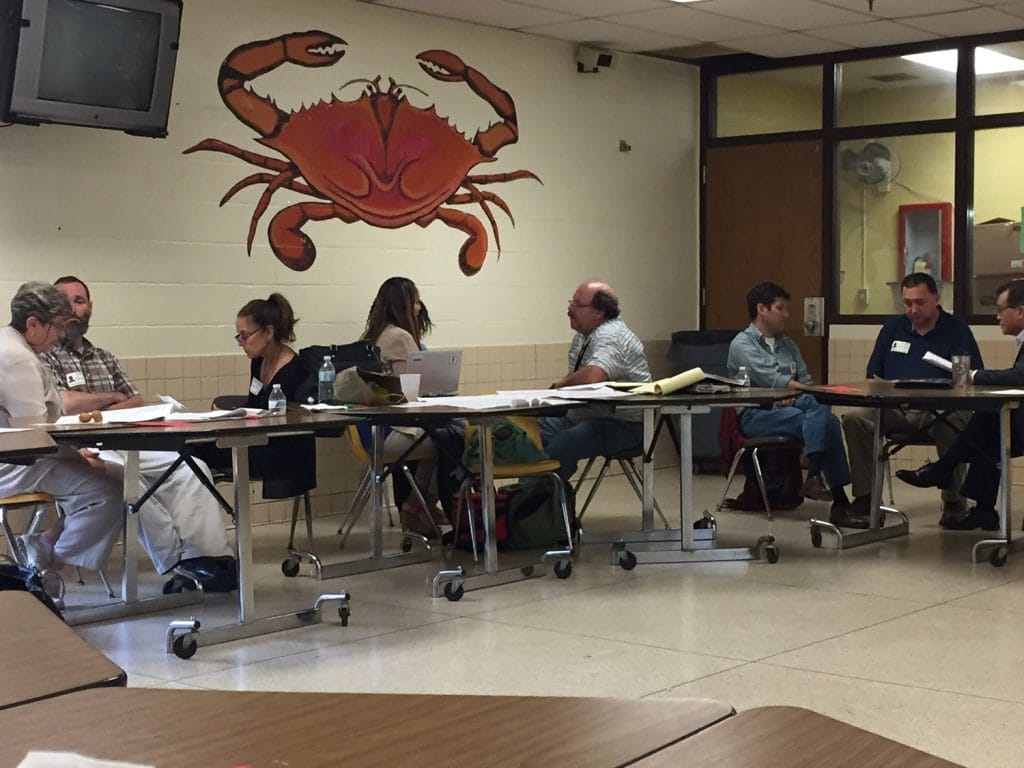


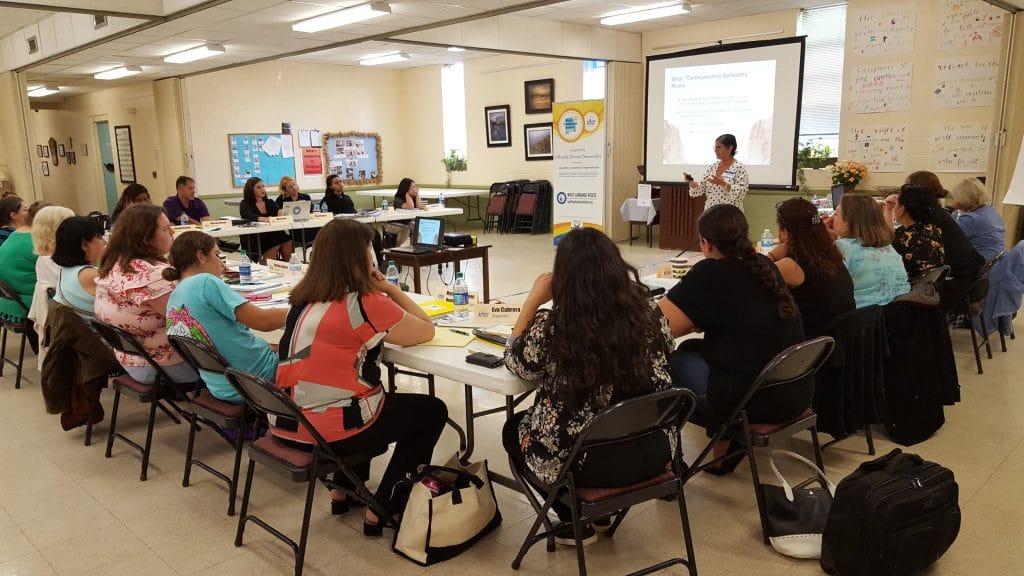
National nonprofit agencies (e.g., National Center for State Courts, National Council on Interpreting in Health Care, Volunteers in Health Care, Boat People S.O.S., International Rescue Committee)
Regional and state nonprofit agencies (e.g., Mid-Atlantic Public Health Training Center, Family Planning Council, Maryland Association of Nonprofit Organizations) and nonprofit coalitions in Florida, Maryland, Indiana, Ohio and Washington, D.C.
Local nonprofit agencies in several states, such as immigrant service agencies, victim services, refugee resettlement and nonprofits serving specific ethnic groups.
Legal services organizations, including legal aid bureaus and agencies specialized in services to Latino and Asian communities.
Examples of our work:
Asian American Center of Frederick: The Community Interpreter ® International
Pro Bono Counseling Project: How to Work with an Interpreter, Cultural Competence in Health and Human Services
Pennsylvania Coalition Against Rape:
The Voice of Compassion: How to Interpret for Rape Survivors (online training)
The Voice of Compassion: Interpreting for Sexual Assault Survivors
Language, Trauma and Healing — A Trauma-informed Approach to Working with Interpreters and Sexual Assault Survivors
AshaKiran: It Breaks My Heart — Interpreting for Trauma
Asian Americans Advancing Justice: The Language of Justice
Y in Central Maryland: Partnerships in Mental Health: Practical Guidance for School-based Counselors and Interpreters
Chesapeake Multicultural Resource Center
Introduction to Community Interpreting
The Community Interpreter ® International
Ayuda
The Language of Justice
The Language of Justice: Training of Trainers
Cultural Mediation for Interpreters
Breaking Silence: Interpreting for Victim Services
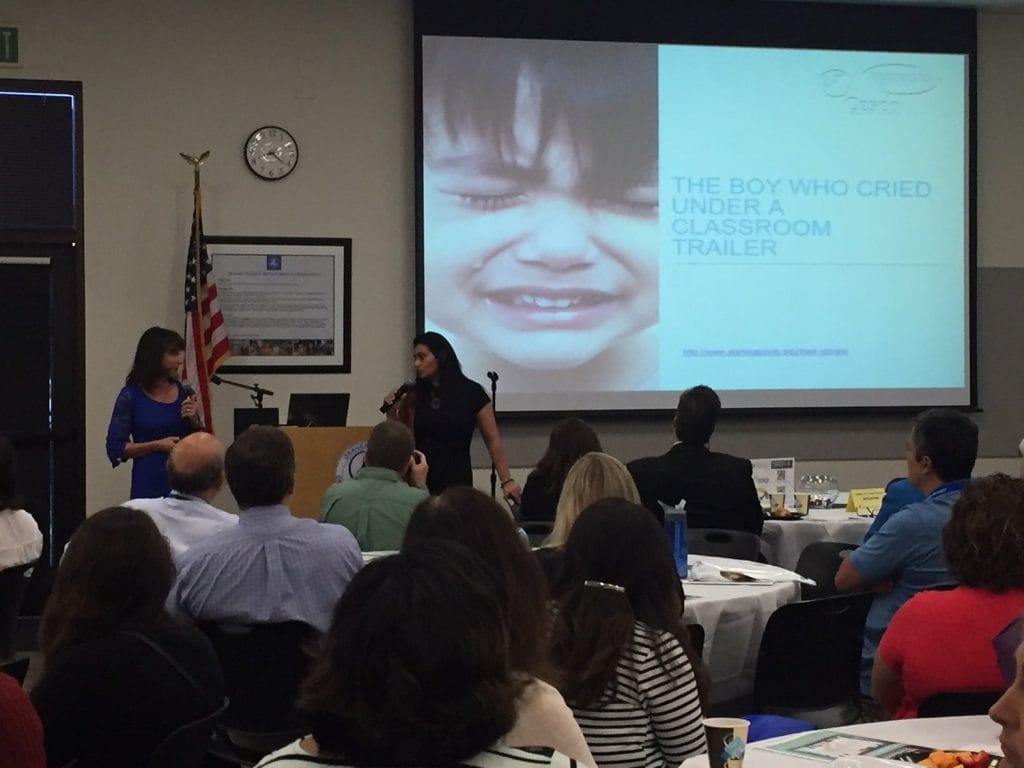
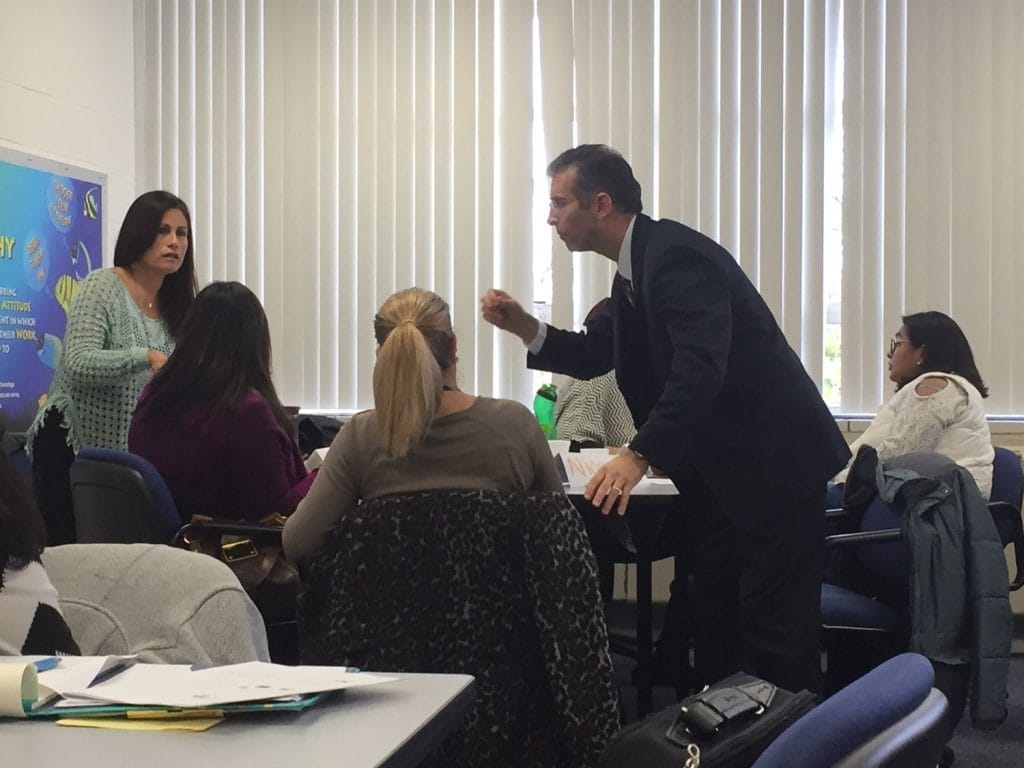
Two- and four-year colleges (including Johns Hopkins University School of Medicine), continuing education programs, immigrant schools and public K-12 schools.
Examples of our work:
The Ohio State University: Technical assistance for development of online training
San Francisco Unified School District: Simultaneous Interpreting for Educational Interpreters
Orange County Department of Education Interpreters and Translators Conference
Consulting on conference creation and development
Keynote and Presentation: Strategies to Support Quality Language Services in School Districts
Anne Arundel County Public Schools: Simultaneous Interpreting in Educational Settings: An Interactive One-Day Workshop for AACPS Bilingual Staff
Howard County Public Schools: Building Blocks for Educational Interpreters
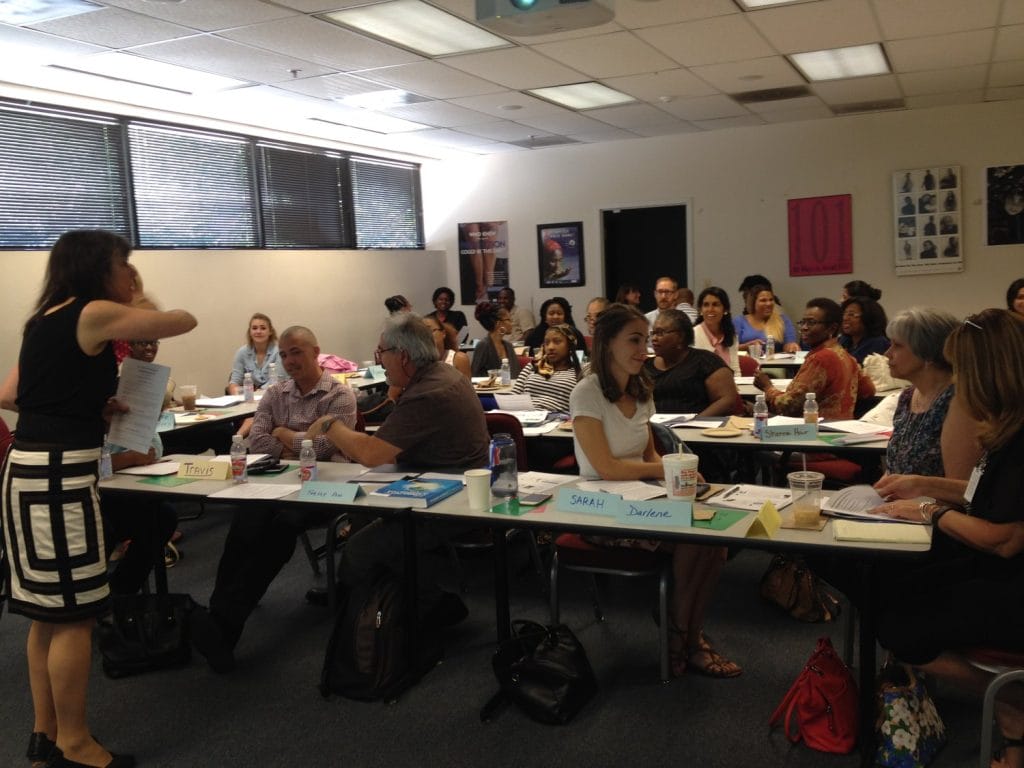

Large health care organizations including Kaiser Permanente Northern California and hospitals across the United States (e.g., Florida Hospital, Phoenix Children’s Hospital, Temple University Health System in Philadelphia, Johns Hopkins University School of Medicine in Baltimore; and Providence Hospital in Washington, D.C.) as well as health departments, community health centers (Federally Qualified Health Centers), clinics and health systems.
Examples of our work:
Staten Island Performing Provider System: The Community Interpreter® International — Training of Trainers
Montgomery Department of Health and Human Services: How to Work with an Interpreter; Introduction to Community Interpreting
Medical University of South Carolina: Medical Terminology Training of Trainers
Barton Healthcare: The Trauma-informed Interpreter
Maryland Department of Health: How to Work with an Interpreter
Medstar Montgomery Medical Center: The Community Interpreter® International
Christiana Care Health System: Medical Interpreter Ground Rounds – Advocacy & Mediation for Medical Interpreters
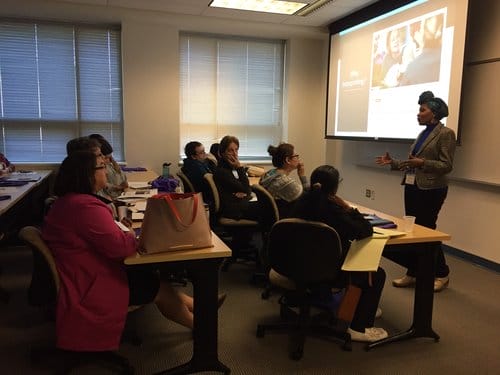

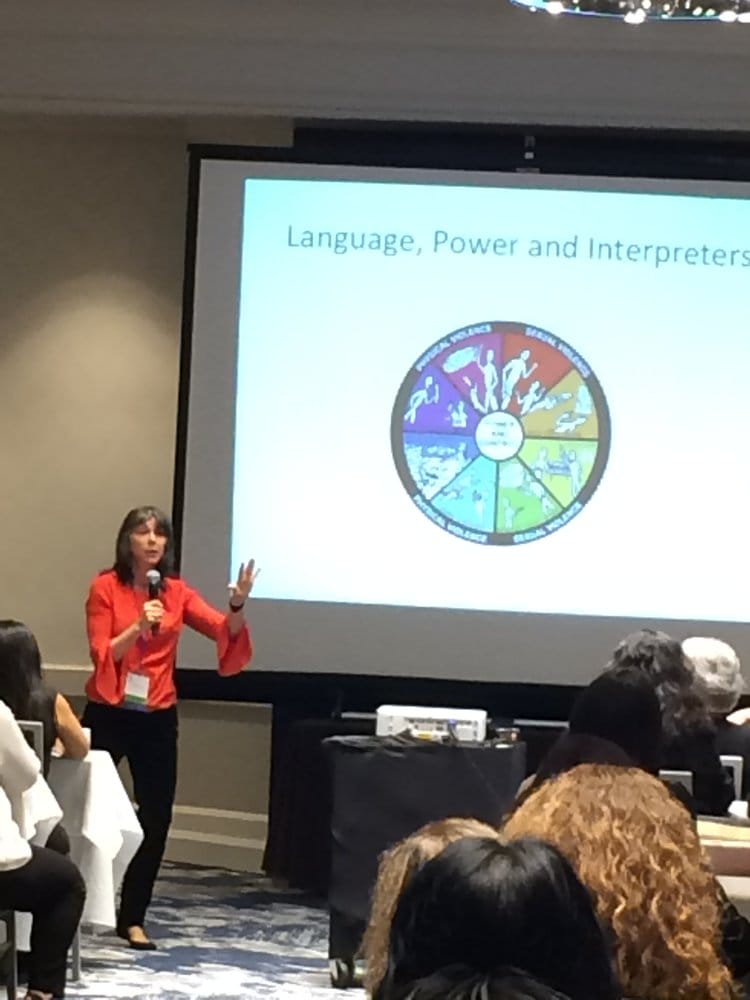
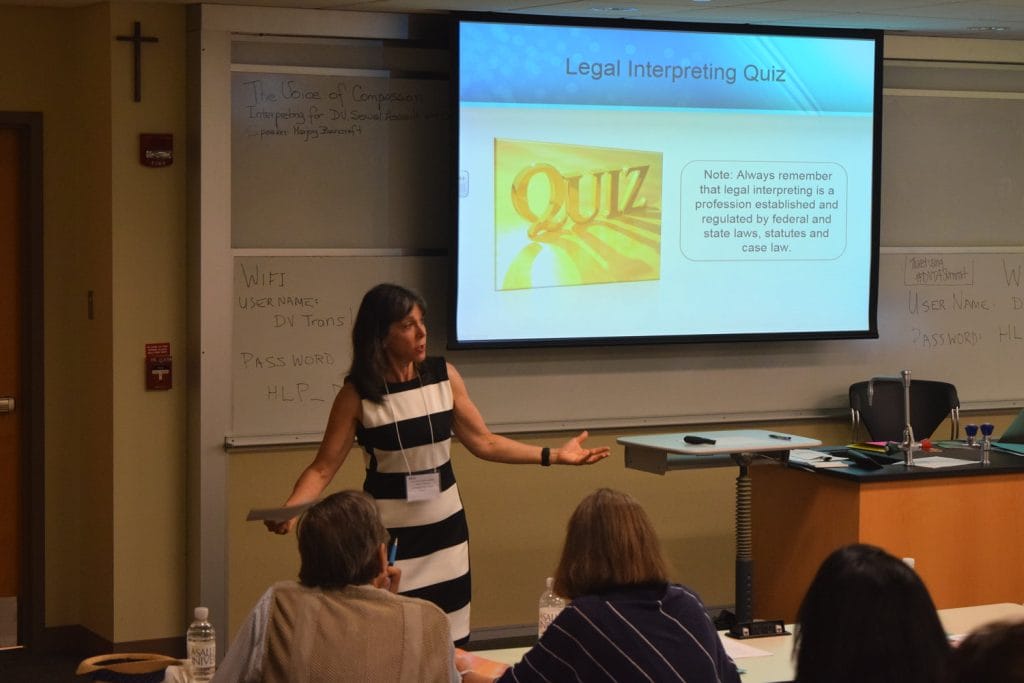
Keynote presentations and conference workshops commissioned by national and international interpreting associations.
Examples of our work:
2020 CHIA Annual Educational Conference
Presentation: The Dirty Secrets of Online Interpreter Training: What You Need to Know Now to Save Your Time, Dollars and Sanity
2019 NATI Annual Conference
Keynote: Lift My Heart — Overcoming the Impact of Trauma on Interpreters and Translators
Presentation: The Interpreter Requests — How to Intervene for Communication Barriers
Presentation: What Do You Mean, It’s Legal! — How to Perform Legal Interpreting in Community and Educational Settings
Panel Discussion: 20 Years of Developing the Interpreting Profession
2019 Critical Link International
Presentation: The Good, the Bad, the Ugly — Assessing Online Training for Interpreters
2019 Minnesota Conference on Meaningful Language Access
Keynote: Give Voice — Advocating for Ourselves, Each Other, and the Profession
2019 Confluence Conference
Presentation: What It Means to Be a Professional Interpreter — And How to Get There
2019 ITAA Annual Conference
Keynote: The Trauma-informed Interpreter
2018 ATI Annual Conference
Keynote: Give Voice: Change the World — and Give Ourselves a Voice
Presentation (with co-presenter Barbara Rayes-Barnett): Rise to the Challenge: Keys for Performing Legal Interpreting in Community Settings
2018 CIT Biennial Conference
Presentation: Walk on the Wild Side: Training Trauma-informed Interpreters for Signed and Spoken Languages in the Same Classroom
2017 AAIT Annual Conference
Presentation: The Gift of Giving Voice — How Interpreters Change the World
2017 CHIA Annual Educational Conference
Presentation: The Trauma-informed Interpreter — Techniques and Strategies for Interpreting Trauma
2016 ATA Annual Conference
Presentation: Help! They Think I’m a Cultural Expert! A Crash Course in Effective Cultural Mediation for Interpreters
2016 DVTA East Coast Interpreters and Translators Summit
Presentation: The Voice of Compassion – Interpreting for Domestic Violence, Sexual Assault and Child Abuse
Presentation: Here Be Monsters! Intervention Skills for the Gray Zone between Legal and Medical Interpreting
Intersect is our weekly e-newsletter with breaking news on language, culture and interpreting. Join 20,000+ subscribers in over 100 countries!